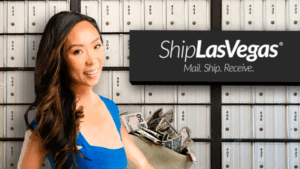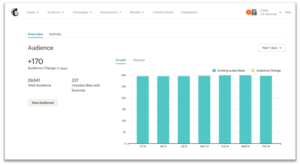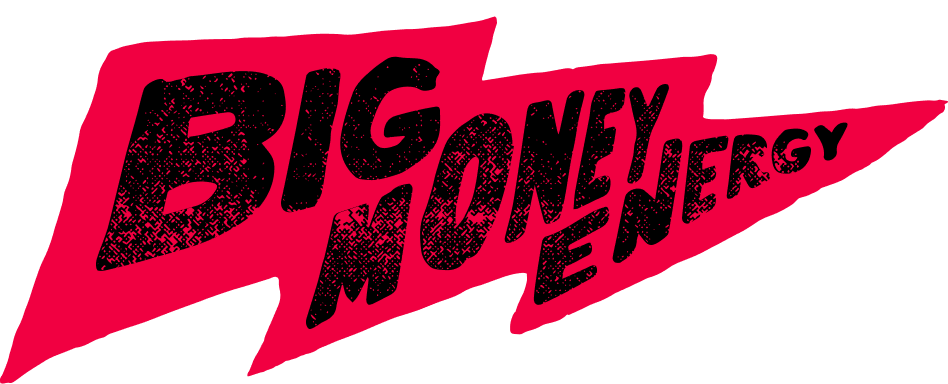Can you really buy a business with no money?
Probably seems like that’s not even a possibility. Luckily? That’s not the case.
Buying a business with SBA loans makes it a lot easier than you would think to make large investments (like buying small businesses) without paying a huge downpayment or using up all of your cash.
There are a dozen and one ways to set up a deal to buy a business with seller financing. You could also create a partnership where someone else is bringing the cash and you bring the time and talent to the deal.
In fact, our Contrarian Community members tend to be split right down the middle between
- Who has more capital than time; and
- Who has more time than capital
And the cold hard truth is that you don’t need both to structure a good deal, especially if you’re interested in buying a boring business through M&A.
Betcha didn’t know that only 40% of small businesses are profitable.
That means 60% are either losing money or breaking even.
While that totally sucks, others may see that as more like a golden opportunity.
Here’s the big secret nobody’s talking about: many of these companies are just on the cusp of profitability, but they need an expert (*ahem* that’s you) to help them get there.
Not to call you the next Mark Cuban of Boring BusinessesTM, but if the jersey fits…
If you want to replace your current income by becoming a small business owner, you should probably at least consider purchasing an established company before rolling up your sleeves and starting from scratch.
But here’s the thing, the previous owner might not have the resources to turn a huge profit. Which sucks, but with your big brain, a few updates, and enough capital, you could turn a small business into a million-dollar company.
Sounds sweet, yeah?
First step: Find the funding.
Keep reading to learn how to get an SBA loan to buy a business and keep your cold hard cash in your own pocket during your dealmaking process.
What Is an SBA Loan?
The main function of the SBA is to help small businesses secure the funding they need to operate—pretty basic stuff.
Through the SBA loan program, small businesses are given government-insured financing from participating lenders.
But one thing here is where a lot of people get confused: an SBA loan is not money lent to small businesses directly from the SBA office. Instead, the SBA sets loan guidelines for loans made by other partners. Fancy words, basic rules.
Those partners include institutions like:
- Banks
- Credit unions
- Community Development Organizations
- Micro-lending institutions
The SBA’s main purpose is to eliminate some of the most common risks for lenders by guaranteeing that a portion of the loan will be repaid. The government program backs up a major portion of the loan amount so that businesses have a higher chance of qualifying for funds.
An SBA loan is also a regulated amount of money that small businesses can borrow but often offers lower interest rates than what banks typically offer. Kind of a win-win, yeah?
If you have a longstanding track record with a local bank, you may be able to get better interest and deal terms.
But for first-time business buyers? This kind of financial insurance can free up your cash and give you more leverage during your dealmaking process.
SBA loans and lines of credit work similarly to conventional business loans offered by banks. Business owners will apply, get approved, and secure funding. Then, they pay the amount back over time with interest, usually based on the business financials and profit margin.
Can I Use an SBA Loan to Buy a Business?
Some people choose to use an SBA loan to buy an existing business.
When buying an existing business with an SBA loan, the business must be open and operating and have a steady stream of profit.
If you’re looking to take a first shot at buying a business, don’t be a hero, be the villain.
Buy the business that’s already got huge stacks of cash coming their way, instead of trying to save a failing business and blowing tons of money in the process.
When you apply for an SBA loan, the SBA lender will need to know the type of business you want to buy. Then they’ll determine if it’s likely to continue making a profit. They also need to ensure you are going to pay back the loan amount.
This is why buying a boring business makes you a great candidate for an SBA loan, by the way.
Typically, they’ve got months (maybe even years) of profit already established and they’re essential to their local community. For example, as long as there are cars on the road, there will always be demand for a car wash.
The SBA loan terms to buy a business will depend on the factors above, but the business must also be profitable and have been established for at least 2-5 years.
How to Get an SBA Loan
Learning how to get an SBA loan requires knowing if you qualify. First things first: you’ll have to be a prime borrower to qualify for an SBA loan.
It’s typically easier to get a loan to buy an already established business than it is to get a startup loan for a new venture. Lenders can see the track record of the business you plan to buy and take that into account when drafting your loan terms.
The qualifications for a loan depend on the type of SBA loan you apply for.
In general, to qualify for an SBA loan, you’ll need the following:
- A credit score of 680 or higher
- A minimum 10% down payment
- A clean criminal history
- No ongoing federal debt
- Industry or managerial experience
- A bankrupt-free record from the past three years
Businesses must also qualify for the loan. The business you’re buying needs to be:
- A for-profit entity
- Based in the United States
- A small business, by definition
- A business with invested equity
These requirements ensure that the SBA office can back the loan which gives you a better shot at fair loan terms. If you find yourself ineligible for an SBA loan, you’ll need to find other forms of small business funding to buy your biz.
We’ll save those Ts & Cs for another article but know that you’re not at a loss. Some other funding methods could include partnerships, seller financing, raising private capital, equipment loans, or even trading services for equity with an option to buy.
How Is an SBA Loan Secured?
SBA backing helps businesses secure a loan, but lenders will also want to reduce their risk in other ways, too. Some will require that the borrower put down payment (often 10-15%) or another form of collateral upfront.
When buying a business, a personal guarantee is a requirement.
Even if you buy a profitable business, there is always a chance of failure, which is why the lender will require collateral in one of the following forms:
- Real estate
- Vehicles
- Equipment
- Accounts receivable
- Other business or personal assets
Lenders may discount the value of the collateral you pledge against the loan. This is because a lot of collateral options lose value over time. A prime example of this is vehicle depreciation.
Types of SBA Loans
If you are set on buying a business with SBA loans, you should also know that there are different types (stick with us here).
You might also find that you could use the funding you secure for other business endeavors as well, so this is good info to know.
You should also know that this is an incomplete list, but a good general overview of some of the more common types of SBA loans:
7(a) Loans
7(a) loans are the most flexible and basic type of SBA loan. The interest rate is based on the amount you want to borrow but the maximum lending amount is $5 million.
This loan type can be used to buy a business in addition to other forms of funding like working capital, business expansions, and more. The loan term can be up to 10 years for working capital and up to 25 years for fixed assets.
There is also a 7(a) small loan program that mirrors the regular 7(a) loan program. The difference is that the amount a borrower can take out is in amounts of $350,000 or less.
SBA Express Loans
SBA Express loans can be used as a revolving line of credit or a term loan. Overall though, nothing too scary. These offer a similar structure to the 7(a) loans from above.
Those looking to borrow up to $350,000 can use the SBA Express loan program. Interest rates range anywhere from 4.5% to 6.5%.
SBA Veterans Advantage Loans
If you are a veteran wanting to buy or own a small business, this loan is designed for you. Many of the same rules apply to this program as the SBA Express and 7(a) packages.
Veteran loans are processed as a subset of those two programs, but keep in mind that the amounts can vary drastically.
International Trade Loans
If you qualify for 7(a) loans and also engage in international trade, you might qualify for an international trade loan.
The maximum borrowing amount for international trade loans is $5 million. These loans can be used for a range of different expenses, including buying a business that engages in international trade.
504 Loans
504 SBA loans are another one of the most common loan types. This loan type is usually reserved for property and other fixed assets.
Depending on the business, the loan amount can range from a maximum of $5 million to $5.5 million.
Interest rates also vary based on each individual business situation, but these also typically follow fixed rates.
Don’t miss the fine print on this one though. As the borrower, you’ll need to put up at least 10% financing upfront to qualify for this loan type.
The business you’re buying must also have a tangible net worth of less than $15 million and an average net income of $5 million or less after taxes.
How to Apply for an SBA Loan
There are different routes you can take to secure an SBA loan. You should also know that the SBA will take your personal financial portfolio into account when you apply for a loan of this type.
No matter which route you choose, you’ll most likely need to include the following documentation with your application:
- Purchase agreement
- Letter of intent to buy the business
- Past three years of business tax returns
- Outstanding business debt
- Business lease agreement
- Long-term business contracts
- Incorporation documents and business license
- Documentation of business assets
You’ll also want to have a valid business plan to provide proof that the business can continue making a profit while under your ownership. The SBA will typically order appraisals as well to provide lenders with an idea of what the value of the business is.
To complete the application, you’ll also need to submit specific forms and documents provided by the SBA. These might include:
- SBA Form 1919 (borrower information form)
- SBA Form 413 (personal financial statement)
- SBA Form 912 (statement of personal history)
- Other financial statements (profit and loss, balance sheet, income projection)
You can get help from a lawyer to fill out the application paperwork but know that you’ll need to document this person if you choose to go this route.
With all of your paperwork in order, you can take the next steps necessary to get an SBA loan. If you want to learn more about what to do next, read on.
Apply Through a Local Bank
Applying through a local bank for SBA loans is pretty common. Working with the bank allows you to have quick and easy access to the SBA office because banks have designated representatives that deal with the government agency.
Basically, there’s no need to sit on the phone for hours listening to some truly mindnumbing hold music.
If you work with a bank that you regularly do business with, getting your documents submitted will be even easier.
You can secure 7(a) and 504 loans through a local bank.
Visit a Small Business Development Center
You can find your nearest Small Business Development Center on the SBA website. These centers can help you find the right lender for your situation.
While at the center, meet with an SBA representative and take advantage of some of the agency’s other services, such as:
- Business plan development
- Financial packaging
- Market research help
Every state has a number of different business development centers you can visit.
Use Online Tools
If you can’t work with a local bank or don’t have a Small Business Development Center near you, use online tools like the Lender Match program that’s offered by the SBA.
Lender Match will process your inquiry to match you with different partners approved by the government agency. It can take as little as two days to find a match and begin the lending process.
The program is quick and easy to use, but keep in mind that it doesn’t necessarily guarantee that you’ll be matched with a lender.
How Long Does It Take SBA to Approve a PPP Loan?
The SBA loan approval timeline depends on the type of loan you are applying for. It’s possible for the review and approval process to take as long as 120 days—yikes!
SBA Express Loans are the quickest option, but sometimes these can still take up to 36 hours to receive approval.
For standard PPP loans, the SBA typically tries to approve them within seven to 10 days. But keep in mind, the lender might hold you back by taking several weeks to reach a decision.
Lenders have extensive documentation to approve so this part of the process can take some time.
How Do I Check the Status of My SBA Loan?
You can easily figure out how to check SBA loan status online through the government website. Existing borrowers can use the SBA Capital Access Financial System (CAFS) to monitor their loan status.
You can check your status as a borrower online if you submitted an online application. If you applied through your local bank, it’s best to contact them directly about the status of your loan approval.
What Happens After SBA Loan Is Approved?
Upon completing your application online, it will be placed in a virtual queue for processing by a loan officer.
Once the loan is approved by the officer and the lender that you chose, it usually takes about 5-7 business days for the funds to become available in your account.
By law, the lender is required to fund your account after receiving loan approval in 10 days or less.
You should expect delays from time to time because there is high demand for the SBA loan program.
Buying an Existing Business vs. Franchise
Most people don’t know this, but you can also use an SBA loan to buy an existing business or franchise. However, it’s important to know the differences between each business model to decide which one is right for you.
The main difference between buying an existing business versus a franchise is the level of control that you’ll have over your purchase.
Franchise Business Model
The franchise business model gives the buyer more guidance, but less control. The business owner, or franchisor, sells the rights to their business name, model, and logo to the independent entrepreneur.
When you buy the franchise, you have the right to use the name, logo, and products of a large brand. You’ll also benefit from promotions, marketing, and brand recognition.
However, it also means you have to follow large branding rules, and you won’t have much say in how the business runs.
Existing Business Model
The buyer of an existing business will typically take over full ownership of the business.
The biggest advantage here is that you’ll have an existing business blueprint to build from that could include the following:
- Established customer base
- Defined operating expenses
- Fully trained employees
One thing that’s not so great here is that you won’t have a set infrastructure, business, or external guidance, so you might struggle to figure out how to run the business…at least at first. The upside is that you get more control.
Keep in mind that an SBA loan cannot be used to partially buy into a business. One owner can buy out another owner or a new owner can purchase the entire organization, but you can’t use an SBA loan for this type of deal.
Existing businesses can also use SBA loans to purchase a different company as long as they are purchasing the entire entity.
Benefits of SBA Loans
An SBA-backed loan comes with a few other benefits that will be unique, depending on the small business you’re buying. The biggest advantages of applying and getting approved for SBA loans are:
Lower Interest Rates
When you want to buy a business to replace your income, you can benefit from SBA-backed loans with lower interest rates.
For example, the maximum interest rate you’ll receive if you qualify for the 7(a) SBA loan program is around 3%. Compared to what traditional lenders offer, that’s a pretty sweet deal.
The cap on interest rates also means that you’ll get a fair market rate if you meet the loan requirements. Double whammy of a win, if ya ask us.
Higher interest rates from SBA lenders are still well below what traditional banks offer, so this is a huge perk. However, if you’re struggling financially you may end up having to pay higher interest amounts to the bank.
Flexible Payment Options
SBA loan programs offer flexibility when you repay your loan. You might be able to refinance the loan, schedule interest-only payments, or defer SBA loan payments until you fall into better circumstances.
However, this is most common for disaster-relief loans. The flexibility you receive will depend on your situation.
Easier Qualifications
It’s no secret that obtaining a conventional loan means meeting strict requirements. Not only do you have to have a great credit score, but you’ll also have to be an “almost perfect” borrower.
With SBA loans, credit score requirements are lower. If you don’t qualify for a typical bank loan because of your credit score, you might qualify for an SBA loan.
The SBA will also help you establish your credibility as a borrower because they work with the bank. They both interpret your financial documents to decide on approval or denial.
Longer Terms
SBA lenders tend to offer longer loan terms. A conventional loan term is short and has a final balloon payment at the end.
With longer loan terms, you eliminate the end payment and have more time to repay what you owe.
Depending on the situation of the business you want to buy, a longer loan term might be a better fit for you. For some business buyers, it’s better to opt for shorter loan terms as long as you can predict the company stays profitable.
Loan terms can be anywhere between 10 and 25 years if you go through the SBA.
Longer terms mean lower monthly payments and offer more flexibility for business spending. This means you can allocate some of your budget to other profit-making renovations.
Lower Down Payment
Another perk? SBA loans require a minimum 10% down payment. Banks, on the other hand, want a 20% to 30% down payment before you can take out a loan.
Down payments are necessary for both methods of receiving a loan because they lessen your risk as a borrower. The way the lender sees it… the more you put down as an initial payment, the more likely you’ll follow through with your repayment plan.
Lower down payments, along with the other ways you save money through SBA loans, can help you stretch your business capital.
Drawbacks of SBA Loans
As with anything, there are downsides to SBA loans. Before you borrow, it’s important to know all of the information.
When you’re going through this process, you’ll also want to know if the requirement is an actual SBA requirement versus a lender specific requirement.
These are some of the drawbacks of applying and qualifying for an SBA loan:
Longer Process
Because of all of the forms and paperwork you need to fill out to apply for an SBA loan, the process typically takes longer than traditional methods. To be totally honest, it can take a decent amount of time to finish the application and gather documents.
The lender will run an analysis and, if you don’t have everything that they need, you’ll have to resubmit the application and start all over again from the beginning.
Your application will then go through the underwriting process where the SBA will either approve or deny it.
This entire process can take 60-90 days and sometimes takes up to 120 days to complete. If you have all of your paperwork in order, preferred lenders will close the deal within 45 days.
Good Credit
Not to be a Debby Downer, but you’ll also need good credit to qualify for an SBA loan. Although you need a good credit score, it’s still not as high as you would need to secure a conventional loan.
The minimum credit score amount also depends on the lender. Most lenders prefer borrowers to have a credit score of at least 680. You should know what your credit score is before applying for the loan.
If you find that your credit score is less than 680, review your credit report to see if there are errors that you can dispute. If you don’t find errors, you’ll need to pay off debt before qualifying for an SBA loan.
Personal Guarantee and Collateral
The biggest drawback to SBA loans is that you must also use a personal guarantee when purchasing a business with an SBA loan.
There’s a good chance that the lender will require you to put up a personal asset for collateral. More often than not, you’ll need to put up your primary residence as collateral. There are insurance policies available in many instances as well.
Apply for a Loan to Become a Business Owner
Being a business owner is a dream for many. If you want to replace your income with monthly cash flow by owning your own business, buying a business with an SBA loan might be your best option.
Instead of investing in a business concept from the early startup phase (risky and lots of blood/sweat/tears), you could try buying an established company that you can hire an operator to manage for you, while you still see the cash flow in your own bank account.
Use this guide to learn how to get an SBA loan and take in all of the considerations during your application process.
Want more support as you buy a small business (including navigating the SBA loan and deal financing process? Take your deal-making to the next level and join our Contrarian Community.




